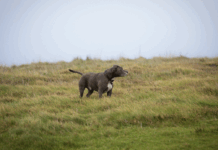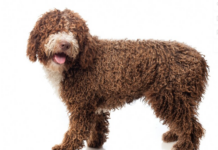Last Updated on August 20, 2024 by Dogs Vets
Basenji Dog Breed: Info, Care, & Facts
The Basenji, often hailed as Africa’s “Barkless Dog,” is a unique and captivating breed known for its distinct appearance and unusual vocalizations.
Originating from Central Africa, this ancient breed was initially developed for hunting and is renowned for its grace, agility, and intelligence. Unlike most dogs, Basenjis do not bark in the traditional sense but instead produce a distinctive yodel-like sound, thanks to their uniquely shaped larynx. Their combination of physical elegance and quirky behaviors makes them a fascinating choice for the right owner.
Despite their charm and striking looks, Basenjis are not suited for everyone. Their high energy levels, strong prey drive, and independent nature require a committed owner who can provide the necessary training, exercise, and mental stimulation. If you’re considering adding a Basenji to your family, understanding their specific needs and characteristics is essential for ensuring a harmonious and fulfilling relationship.
Breed Overview
- Height: 16–17 inches
- Weight: 22–24 pounds
- Lifespan: 13–14 years
- Colors: Black and white, black, tan and white, brindle and white, red and white
- Suitable for: Active families, canine competitors, experienced owners
- Temperament: Sweet, high-energy, fastidious
Basenji Characteristics
The Basenji, often referred to as Africa’s “Barkless Dog,” is a graceful and athletic breed with a distinctive appearance. Known for its lack of traditional barking, the Basenji produces a yodel-like sound due to its unique larynx structure. This breed combines traits of primitive dogs and Spitz breeds, resulting in an intelligent and strong-willed hunter.
Key Traits:
- Energy: High
- Trainability: Moderate
- Health: Generally good
- Lifespan: 13–14 years
- Sociability: Moderate
Basenji Puppies
Basenjis are a rare breed in the US, with limited breeders and infrequent litters. Due to their low reproduction rate, potential owners may face long wait times for a puppy. Puppies are known for their high energy and intelligence, which can lead to mischievous behavior if not properly managed. Early socialization and training are essential for a well-adjusted adult Basenji.
Image Credit: Tikhomirov Sergey, Shutterstock
Temperament & Intelligence
Basenjis are alert, curious, and energetic. They typically form a strong bond with one person, often their primary handler. Their intelligence, combined with a streak of stubbornness, makes them better suited for experienced owners. They may be reserved with strangers and are not always ideal for homes with young children due to their high prey drive and potential for chasing.
Family Compatibility: Good for active, experienced families. Caution with young children.
Interaction with Other Pets: Generally not suitable for homes with small animals; may get along with medium to large dogs.
Food & Diet Requirements
Basenjis require high-quality dog food tailored to their activity level, size, and life stage. Proper portion control is important to prevent obesity, and regular exercise is necessary to maintain their health.
Exercise
Being a highly active breed, Basenjis need ample physical exercise and mental stimulation. They are prone to boredom-induced destructive behaviors if not sufficiently exercised. Secure fencing is essential, as they are known to escape and chase small animals. Basenjis excel in canine sports like lure coursing and agility.
Image Credit: alektas, Pixabay
Training
Basenjis are among the least trainable breeds due to their independent and sometimes aloof nature. Their intelligence is often used to satisfy their own needs rather than those of their owners. Structured training sessions with clear boundaries and short durations are most effective.
Grooming
Basenjis groom themselves frequently, minimizing the need for regular baths. Their short coats require only occasional brushing. Regular nail trimming is necessary to prevent injuries during play.
Health and Conditions
Basenjis are generally healthy, partly due to their limited breeding. However, they are prone to certain health issues:
Minor Conditions:
- Pest infestation
- Weight issues
- Hypothyroidism
Serious Conditions:
- IPSID (Inflammatory Bowel Disease)
- Hip dysplasia
- Fanconi syndrome
- Progressive retinal atrophy
Responsible breeders should screen for these conditions to ensure healthy puppies.
Male vs Female
There are minimal differences between male and female Basenjis, though males may be slightly larger. Spaying or neutering can address some behavioral issues and prevent reproductive health problems.
3 Little-Known Facts About the Basenji
- Basenjis Hate the Rain: Despite their origins in dry regions, Basenjis are not fond of wet weather.
- Basenjis May Act Like Meerkats: They sometimes stand on their hind legs to better observe their surroundings.
- Their Intelligence Is Self-Serving: Basenjis are clever but often use their intelligence for their own purposes rather than pleasing their owners.
Conclusion
The Basenji is a vibrant and energetic breed, perfect for experienced owners who can meet their needs for exercise, training, and mental stimulation. Their unique traits and high activity levels make them an interesting companion for the right home.























